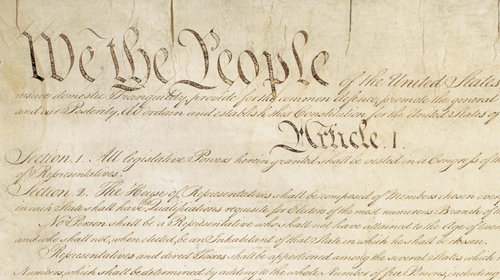
Yesterday, we filed a friend-of-the-court brief in the Supreme Court in a case called United States Agency for International Development v. Alliance for Open Society International, opposing the so-called "Anti-Prostitution Pledge." The Pledge is a requirement that public health organizations who wish government funding for their work combatting AIDS and other diseases make a formal statement "opposing prostitution."
The Pledge puts organizations in a quandary: On one hand, they can take the government's money and say something they might not really believe, have no opinion about, or see as a complex social issue irreducible to anything as simpleminded as "opposing prostitution." On the other hand, they can take a principled stand against the Pledge, forfeiting a share of billions of dollars in government aid that they could otherwise put to good use curbing disease and relieving human suffering.
As we argued to the Supreme Court, the Constitution forbids the government from engaging in such moral compulsion. The First Amendment is, at its core, a shield against government intrusions into belief. When the government attempts to compel adherence to its view on any issue, it invades our very minds. Justice Jackson put it best in the historic 1943 case Board of Education v. Barnette:
If there is any fixed star in our constitutional constellation, it is that no official, high or petty, can prescribe what shall be orthodox in politics, nationalism, religion, or other matters of opinion or force citizens to confess by word or act their faith therein.
In Barnette, and many other cases, the Supreme Court has made it clear that โ whatever else the government may do โ it may not dictate personal thoughts or beliefs. Any attempt to do so does violence to human dignity and distorts public debate.
We reminded the Supreme Court of the danger of measures that โ like the Anti-Prostitution Pledge โ pressure citizens to pledge loyalty to government-prescribed views. The Court will hear argument in the case on April 22, and will render its judgment in the coming months. Let us hope that the Court comes down against the Pledge, reaffirming the freedom of belief.
Learn more about the first amendment and other civil liberty issues: Sign up for breaking news alerts, , and .


